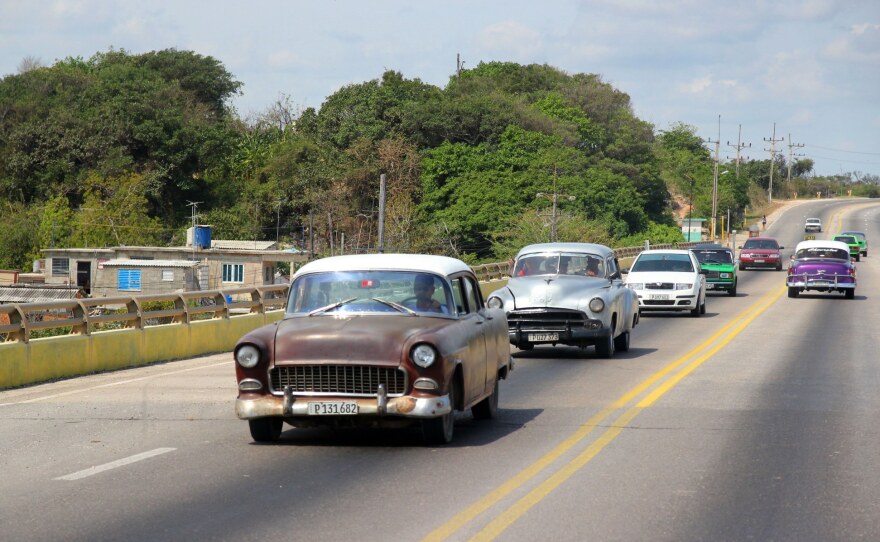All around Cuba, vintage American cars from the 40s and 50s are still in use, mainly because newer ones are hard to come by. The majority today are used as taxis.
Locals and visitors get around in the almendrones (almonds), as they are called because of their shape, and ride sharing is common.
Cubans will pay as little as 10 cents for a ride. Tourists pay anywhere from $3 to $5 or more.
Almost all of the classic cars have new engines under the hood and diesel is a popular choice.
Taxi driver Carlos Zamorra owns a 1952 Chevrolet Belair with a Nissan Jeep engine from 1995. “This car was my grandfather’s car, and then my father’s and now it’s mine.”
Zamorra says motor belts are difficult to find so he has a friend send certain parts from abroad.
After the Cuban Revolution of 1959 the government began to import Hungarian and Russian cars like the Lada.
Today you’ll find newer vehicles that are mostly owned by government workers, but many find their way to citizens. Among the others are Fiat, Renault, Peugeot, Hyundai, Kia, and the Chinese Geely.
Another taxi driver, Mario Espinoza says he can make more money driving than he can working for the government.
“Stuck in time,” is a phrase you often hear in reference to Cuba. Most people agree that’s due to the trade restrictions between the U.S. and Cuba. But it’s hard to find anyone who harbors bad feelings toward the U.S.
Sergio Torres bought his 1954 Pontiac for $250. “The car didn’t run, the vinyl was falling apart and it didn’t even have a steering wheel,” he remembers.
The car now has a Hyundai engine. It took over a year and nearly $3,000 to get it in good working condition. An investment he’s made with friends and family.
Torres works daily from early morning into the evening. Some days are better than others he says.
Michigan Radio's Tracy Samilton and Mercedes Mejia are in Cuba this week to cover the connections between Cuba and Michigan and opportunities for the future. You can find more of their stories here.










